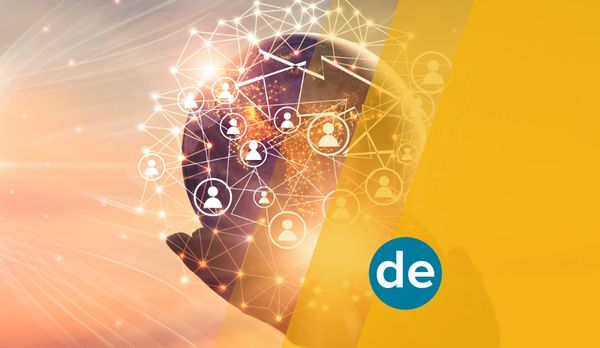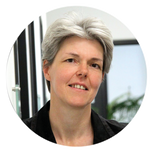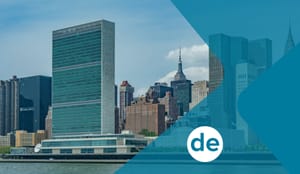The current geopolitical situation makes the model of "One World– One Internet"– once the slogan of the 2005 World Summit on the Information Society – appear more fragile than ever. The United Nations is trying to counteract the development with the "Global Digital Compact", but the technical community and civil society are sceptical about parts of the initiative.
It has been hanging in the balance for some time now: the original idea of the Internet, self-governed exclusively by neutral infrastructure operators, as a worldwide, decentralised digital network that functions globally across all physical and political borders, regulated solely by agreements of a technical nature, and thus codified in protocols and standards that are free of political interests and lines of conflict. However, the vital basis for this, namely a certain degree of fundamental trust shared among stakeholders, seems to be increasingly shaken.
New Blocs Are Forming with Diverging Ideas Drifting Apart
States such as China and Russia, but also Iran, are taking the lead in a new trend: They are increasingly striving for national control over the Internet and for sealing off the network infrastructure on their territory; the term "digital sovereignty" is cropping up ever more frequently.
The EU, on the other hand, sees itself as an international pioneer when it comes to regulating the digital space. Its major concern is to contain the market power of large technology corporations and to strengthen competition and consumer rights: This includes legislation that is already applicable, such as the General Data Protection Regulation, which entered into force in 2018, as well as the recently enacted requirements for online platforms (Digital Services Act and Digital Markets Act). But it also extends to projects that still have to pass through the EU legislative bodies, such as the planned regulations on artificial intelligence (AI Act).
The USA, which continues to consider itself a global leading power, wants to maintain and expand its geopolitical sphere of influence, and its increasing importance in the digital sphere going along with: With its "Declaration for the Future of the Internet", a commitment to the preservation of the open, free, global, interoperable, reliable and secure Internet, submitted in April 2022, the United States gathered round itself not only all EU states but also 40 other international partner countries that feel committed to the same values.
Looking at this escalating competition between different models of digital governance the question arises ever more urgently if cooperation in this area can be shaped in the future at all.
The Eternal Dispute: Multilateral versus Multistakeholder
In 2006, in the wake of the World Summit on the Information Society (WSIS), a platform was created with the Internet Governance Forum (IGF) of the United Nations that for the first time deviated from the multilateral model that had prevailed until then. While the former model had reserved participation primarily to representatives of states, the new format brought together actors from the governmental sector with non-governmental stakeholders from academia, the technical community, the private sector and civil society. In annual events, they were to exchange views on important political issues and rules for shaping the Internet (Internet governance) – explicitly at eye level, in an approach that brings concerns from the grassroots to the attention of higher hierarchies ("bottom-up" instead of "top-down").
In the following years, regional and national offshoots emerged from the global IGF, in which interested parties came together in communities to enable opinion-forming and discussion processes for digital policy issues at local level. Examples are EuroDIG, the European Dialogue on Internet Governance, or Germany's national Internet Governance Forum (IGF-D), both of which have been active since 2008. The discussion results of these offshoots have been brought into the debate process of the global IGF. DENIC, too, has been involved in the various Internet governance processes – at both regional and international level – from an early stage and has intensified its commitment even more since the beginning of 2023, when the Cooperative took over the management of the IGF-D Secretariat.
The multistakeholder approach practised within the IGF has proven a genuine overarching participation model for all social groupings over the past 17 years and has gained broad acceptance, especially among non-state actors. Critics, on the other hand, have seen the IGF as a toothless tiger from the beginning,a mere dialogue forum without enforcement powers that lacks the ability to exert real influence on political decision-making processes.
According to the resolutions of the UN General Assembly, the Review Conference of the UN World Summit on the Information Society (WSIS+20) must decide in 2025 on an extension, modification or termination of the mandate for the IGF. What will happen to the established multistakeholder model after that seems to become ever more unclear.
Is the Global Digital Compact a Sustainable Compromise in the Interest of All or a Phoney?
Whereas until not so long ago, the digital divide mainly meant a separation of the global North and the global South and was primarily a question of access and education, a larger divide is now emerging along growing multipolar thought patterns. In short, the doctrine of more state control at national level meets the will to hold on to data streams that can flow freely across the globe.
UN Secretary-General António Guterres wants to counteract these developments with big plans: Within the UN, the only remaining institution where multilateral talks are still taking place, he is pursuing no less a goal than to prevent the disintegration of "One World -– One Internet". He wants to achieve this aim by December 2024 when the United Nations Summit of the Future takes place, with a minimum consensus of all 193 members of the international community. An essential element of his agenda is the Global Digital Compact (GDC), an initiative that is to develop and establish "shared principles, goals and measures to advance an open, free, secure and human-centred digital future".
Guterres took the first step towards this goal on the occasion of the 75th anniversary of the United Nations in September 2021 with his report "Our Common Agenda". The 12 commitments contained in this report include seven defined goals to improve global digital cooperation: Connect all people to the Internet (including all schools), avoid Internet fragmentation ("splinternet"), grant the right to digital self-determination (protect data), apply human rights online, introduce accountability criteria for discrimination and misleading content, promoting regulation of artificial intelligence, and digital commons as a global public good.
In the first half of 2023, global consultations on the Global Digital Compact were held with governments and various stakeholders, chaired by the UN Permanent Representatives of Sweden and Rwanda, who facilitated the process on behalf of the Secretary-General. Written cross-topic comments could be submitted until the end of April. The process was flanked by a series of topic-centred online hearings ("deep dives") on the individual focus topics of the GDC from March to June.
According to the original scheme, the opinions expressed in this framework were then to be incorporated into an issues paper that was negotiated on 18 and 19 September at a UN ministerial conference in the context of the 2023 SDG Summit in New York. This summit marked the mid-term of the 2030 Agenda for Sustainable Development and was therefore an occasion for the heads of state and government to take stock of the implementation status of the Sustainable Development Goals (SDGs). The Global Digital Compact shall be finally adopted at the UN Summit of the Future in December 2024.
The Community Complains About a Lack of Transparency and the Endangerment of Multistakeholderism
Yet until the very end, it remained unclear what precisely happened with the input of those participating in the public consultations on the Global Digital Compact. Non-state actors had repeatedly demanded during the deep-dive discussions to be appropriately involved in the preparation of the "Issues Paper", which was to serve as a basis for the government negotiations at the GDC ministerial meeting in September. The natural place to prepare the GDC and implement its recommendations – after the text is adopted at the UN Summit of the Future in 2024 – was the Internet Governance Forum, the multistakeholder community said. This year's IGF in Kyoto will take place in October, three weeks after the UN ministerial meeting.
However, not only the lack of transparency in the handling of the results of the hearings, but also various announcements by the UN Secretary-General and his Tech Envoy, Amandeep Singh Gill, published in the middle of the ongoing consultation process, aroused the distrust of the multistakeholder community: They vaguely referred to a "High Level Advisory Panel" that was to create a new "Global Commission on Just and Sustainable Digitalisation", and mentioned the formation of a new "UN Digital Cooperation Forum" (DCF). Both were not meant to replace existing global Internet governance mechanisms such as the IGF but should merely complement them. However, the UN leadership has so far remained silent on what exactly such newly created, cost-intensive institutions could achieve that cannot also be provided within the framework of the IGF with its structures that have grown over the years.
Recurring descriptions of the GDC process as an "intergovernmental process with multistakeholder participation" also caused irritation. Critical observers suspect this to be a covert attempt by some states to put the multistakeholder process, which has grown over two decades and is independent of governments, back under multilateral, i.e. intergovernmental, control. They assume that it might be gradually undermined by creating structures that are easier to control and by financing these in a targeted manner.
Fears that the IGF and thus the multistakeholder model might be marginalised by the GDC process instead of further developing this approach of equal cooperation between states and non-state actors were also fuelled by statements uttered by Guterres and Gill. They spoke only of a tripartite stakeholder model consisting of governments, the private sector and civil society. Research and science as well as the technical community, which were previously represented as independent stakeholder groups in the context of Internet governance, were not explicitly mentioned.
However, given the increasing technical complexity and ever more pervasive laws and regulations, it is more crucial than ever to listen to the technical community. Because only if the technical and operational effects of regulatory efforts are identified at an early stage, can the systems be steered by the infrastructure operators in a manner that ensures that they continue to fulfil their purpose – without undesirable side effects.
Thus, ICANN (Internet Corporation for Assigned Names and Numbers), APNIC (Asia-Pacific Network Information Centre) and ARIN (American Regional Information Network), three central players that contribute significantly to the technical infrastructure and thus the functional core of the Internet, were not very pleased with the UN leadership's statements: in a protest letter published in August, they described the actions of the UN leadership as an attempt to weaken the position of the technical community and thus the independent, transnational self-governance of the Internet in favour of other stakeholders.
An open secret, for example, are the long-standing ambitions of the intergovernmental International Telecommunication Union (ITU). ITU is a specialised agency of the United Nations and the only international organisation under international law that is officially entrusted with coordinating technical aspects of telecommunications throughout the world. ITU has never stopped entirely to cast covetous eyes on the non-state Internet administrators and claiming its own powers over domain names and IP addresses.
DENIC and the Technical Community in the GDC Process
CENTR, the association of the European country code top-level domain (ccTLD) registries, has also issued a statement on the Global Digital Compact, voicing the opinion of the technical community. DENIC actively participated in the collaborative drafting of the association's statement, together with the other CENTR members. The CENTR community administers more than 80 percent of all country code domains registered worldwide.
In the statement, the CENTR members call on the governments of the international community to continue to guarantee universal access to the Domain Name System (DNS), which is a prerequisite to be able to use the Internet, to all people in the world. They further demand to refrain from legislation at regional and national level that results in unnecessary or disproportionate access restrictions or from granting privileges to individual players. Moreover, they advocate counteracting the fragmentation of the Internet by ensuring that all stakeholders respect and support the existing multistakeholder governance of the DNS. This is the only way, so the statement, to continuously ensure the global interoperability of the network, which is based on the development and application of common open standards and protocols, which are provided for instance by the standard-setting in the Internet Engineering Task Force (IETF). In order not to compromise the Internet’s technical infrastructure with its cross-border nature, governments must ensure that data protection regulations of different territories are non-conflicting and commit to long-term high data protection standards. Finally, the CENTR members added, all stakeholders should recognise that the technical Internet infrastructure is not an appropriate point to address societal problems, but that they must be tackled at their very root. Therefore, the Domain Name System must not be used as a lever for intervention on content-related issues.
Of the more than 400 comments submitted, only nine came from the technical community. This is a mere two per cent.
German Politics in the GDC Process
Unlike France or the UK, for example, the German government has refrained from issuing its own statement on the Global Digital Compact but has instead endorsed the EU statement. Nevertheless, it is clearly committed to the multistakeholder model and accordingly also promoted the regional consultations on the GDC in various emerging countries. The aim behind this is to close ranks with "like-minded states" in the global South. According to the answer to a parliamentary question, the German government wants to closely accompany the text negotiations in general. A special focus shall be placed on the topics of gender equality and AI as well as the protection of human rights online, without, however, neglecting the contribution of the digital economy to achieving the global sustainable development goals of the 2030 Agenda.
The current as well as all previous federal governments of the digital age have been and still are criticised by civil society, which does not feel being adequately involved in governance processes. There might be hope now: At the 14th edition of Germany's national Internet Governance Forum (IGF-D), which was co-organised by DENIC and held on 13 September at the Federal Foreign Office in Berlin, it was not only State Secretary Stefan Schnorr (from the Federal Ministry for Digital and Transport, BMDV), who explicitly reaffirmed Germany's commitment to the multistakeholder model in his welcoming speech. Also Germany's Ambassador for Cyber Foreign Policy, Regine Grienberger, and Irina Soeffky, Head of BMDV's National, European and International Digital Policy sub-department, who actively participated in the event, promised to better live up to the multistakeholder idea in the future. They pledged to listen to and take into account expert opinions from Germany's traditionally very active digital civil society more carefully and at an earlier stage.
A start could be made already this autumn at a roundtable on the future of the national multistakeholder dialogue, which will take place on 28 September in Berlin: Next to other representatives from the technical community – the Internet Society German Chapter (ISOC.DE), the Association of the Internet Industry eco e.V. and RIPE, the consortium for European IP network operators – DENIC's Senior Policy Advisor Peter Koch will participate on behalf of the IGF-D Secretariat in the panel discussion with German and European policymakers.
But back to the Global Digital Compact: What if the community of values around Washington and Brussels does not formulate a more precise vision for the future of the Internet, one that goes beyond vague demands for democracy and a rights-based approach? Then, political observers believe, it is to be feared that the GDC could strengthen the position of those advocating cyber sovereignty – including above all the BRICS states and some Arab countries – at the expense of the USA and the Western partners.













